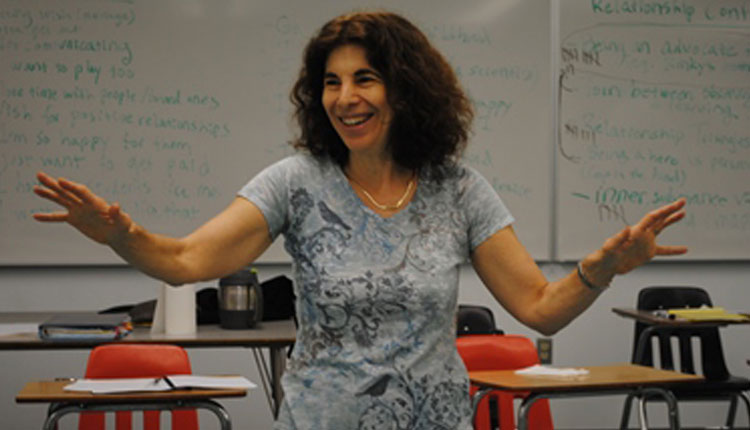Theater of Possibility for Autism
Seattle theater artist and playwright, Lauren Marshall, has developed an amazing class for both neurotypical and special needs children. Entitled “Theater of Possibility," Lauren synthesizes what she has learned as a mother of two daughters on the autism spectrum with Relationship Development Intervention (RDI) and “Theatre of the Oppressed," a movement that employs theater as an agent of social change.
RDI is a parent-based therapy that addresses core deficits of autism such as emotional referencing, social coordination, flexible thinking, declarative language, foresight/hindsight and relational information process (the ability to solve problems that have no right or wrong solution). Having realized the shortcomings of ABA (Applied Behavioral Analysis) in creating more than mimicked skills in her daughters, Lauren turned to RDI to fill in the “why” of performing social behaviors. For instance, her theater games require participants to utilize eye contact and read facial expressions in order to know what to do next, teaching non verbal communication in a playful, effective manner.
Lauren also infuses her curriculum with the principles of Augusto Boal, the Brazilian founder of “Theatre of the Oppressed” who maintained that “oppression is when one person is dominated by the monologue of another and has no chance to reply." He created the concept of using theater as a means of empowering audiences and performers alike. The heart of Boal’s work is the spect-actor, the audience members who are asked to join in problem solving the dilemma presented onstage. Major techniques of “Theatre of the Oppressed” that Lauren draws upon include:
Forum Theater – A problem solving technique in which an unresolved scene of oppression is presented. It is then replayed with the audience invited to stop the action, replace the character they feel is “lacking power”, and improvise solutions. This structure can be used to explore past and current situations, or as a rehearsal for a future event.
The Cop in the Head – Techniques that help individuals explore the internal voices, fears, oppressions that prevent him/her from living fully. Rather than focus on external oppressors (“cops”), these techniques bring to light the “cops” inside one’s head.
The Rainbow of Desire – A technique which deconstructs one person’s story of tension in a relationship – parent/child, employer/employee, lovers, friends, etc. Using Image Theater, we then identify and bring to life the various conflicting emotions — the fears and desires that are happening inside the characters. The process very quickly goes beyond the individual story into an exploration of the group experience
and the “rainbow” of who we are.
Lauren’s ability to bring together kids with diverse needs and have them work harmoniously is an outstanding part of her class. Neurotypical kids and those with various degrees of challenges strike a chord of true mutual understanding and appreciation.
My sixteen-year-old son has never fared well in the classroom setting and when I sent him off to the first meeting of Theater of Possibility, I fully expected a cell phone call telling me to come get him soon after I left. Instead, at the end of the class I heard “what a joy he is to work with!” I couldn’t believe my ears. When his class gave its final presentation, my other son balked at having to attend, but soon he was joining in onstage, having the time of his life. He signed on for the next session.
When our kids thrive at something they attempt, it’s a such a joy. Improvisation affords them the opportunity to learn social skills obliquely and act out their inner lives instead of acting out.

